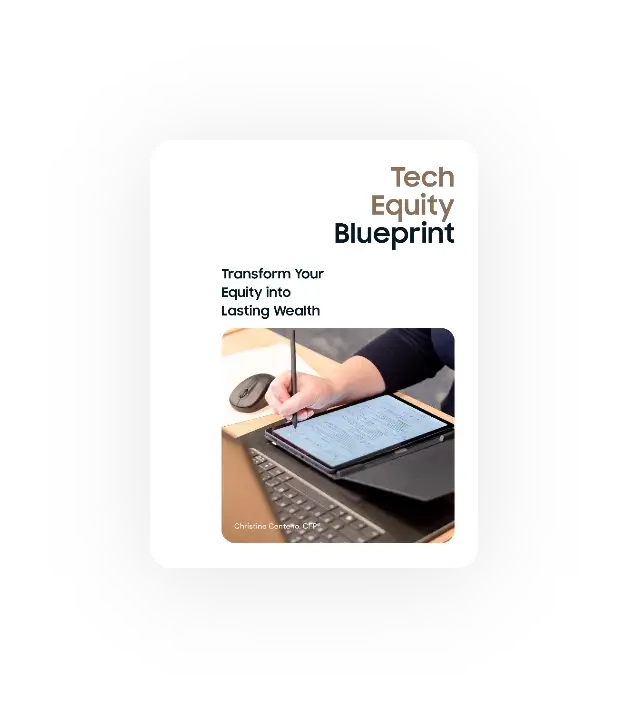BLOG / Financial Planning
What is a Fee-Only Financial Advisor? What is a Fiduciary?

Our industry is known for its use of jargon. We use jargon to describe the type of advisor we are, our services, and our qualifications. We expect you as the client to understand all the nuances. How could you, when there is confusion within the industry itself?
It’s not easy to sort through all of the noise. We’ll look at two important terms, Fee-Only and Fiduciary and clearly define them, helping you be more informed when selecting your next advisor.
What is a Fee-Only Financial Advisor
Of the two terms, this is by far the lesser-known and often easily confused with other industry terms by clients and industry professionals alike. Simply put, fee-only means your advisor receives no commissions and is paid directly by their clients. Employees of brokerage firms, insurance companies, and mutual fund companies (think Merrill Lynch, Northwestern Mutual, Fidelity, etc.) receive commissions for product sales and referrals. Why is this an issue? It can create common conflicts of interest and cause recommendations to be motivated by a sales goal.
Let’s take a look at a few examples:
-
An advisor from ABC Company, recommends a portfolio to you containing all ABC Mutual Funds. Why should you pause and ask more questions? Their company has sales goals and recommending ABC funds over other options may result in a larger commission for the advisor. Ask questions about why the recommendation was made.
-
An advisor from DEF insurance company recommends you purchase an insurance policy, they put one option on the table, and it’s a policy issued by their company. Have they looked at other options for you? Are they able to? Or does their employer only allow them to sell policies issued by their company alone? Do they disclose this policy to you?
-
Your advisor recommends their companies’ lending department and gets compensated if you open a line of credit, or take out a mortgage. Why could this be concerning? Where they able to evaluate other more cost-efficient lending options out there and provide you with alternatives?
I am not saying that everyone that works for a brokerage, insurance, or mutual fund company is dishonest and motivated solely by commissions, I know good people from my brokerage firm days. I was one of these people. If they choose to provide advice in your best interest, it’s not because their employer requires it, it’s because they are truly honest individuals. The point is, these individuals are not held to a higher industry standard. So if you don’t know them personally, how do you make an educated decision when interviewing advisors?
One option is to work with someone that must take a Fiduciary Oath in order to avoid common conflicts of interest.
What is a Fiduciary
A fiduciary is someone that is legally obligated to provide clients with advice that is in their best interest. They are required to disclose any potential conflict of interest to you before engaging you as a client. You might think all advisors should do this and I wholeheartedly agree. That is what the highly contested (and failed) DOL ruling was all about. When looking for a Fiduciary, look for someone who is putting their money where their mouth is. Do they have a professional designation that holds them to strict codes of ethics and professionalism, like the CERTIFIED FINANCIAL PLANNER™(CFPⓇ), Certified Public Accountant (CPA), Personal Financial Specialist (PFS™) or Chartered Financial ConsultantⓇ (ChFC)? Are they part of professional organizations such as the National Association of Personal Advisors (NAPFA) that require their members to take an additional oath and complete continuing education above and beyond what their designations may require? In other words, are they taking their role as a fiduciary seriously?
Ask good questions and be your own advocate. Bottom line, know-how and what you are paying for advice. Know the different ways that your advisor is being compensated. Ask your advisor these questions, and if they can’t clearly answer, it’s probably time to move on. Working with someone that is a Fee-only and Fiduciary advisor won’t weed out all of the bad apples, but it’s a good place to start evaluating your options.
For more information and guides on how to select an advisor, visit the Fee-Only Network or NAPFA’s Consumer Resource Center.
Disclaimer
The information on this site is provided “AS IS” and without warranties of any kind either express or implied. To the fullest extent permissible pursuant to applicable laws, Simplicity Wealth Management LLC (referred to as “SWM”) disclaims all warranties, express or implied, including, but not limited to, implied warranties of merchantability, non-infringement, and suitability for a particular purpose. SWM does not warrant that the information will be free from error. None of the information provided on this website is intended as investment, tax, accounting or legal advice, as an offer or solicitation of an offer to buy or sell, or as an endorsement of any company, security, fund, or other securities or non-securities offering. The information should not be relied upon for purposes of transacting securities or other investments. Your use of the information is at your sole risk. Under no circumstances shall SWM be liable for any direct, indirect, special or consequential damages that result from the use of, or the inability to use, the materials in this site, even if SWM or an SWM authorized representative has been advised of the possibility of such damages. In no event shall Simplicity Wealth Management have any liability to you for damages, losses, and causes of action for accessing this site. Information on this website should not be considered a solicitation to buy, an offer to sell, or a recommendation of any security in any jurisdiction where such offer, solicitation, or recommendation would be unlawful or unauthorized.



